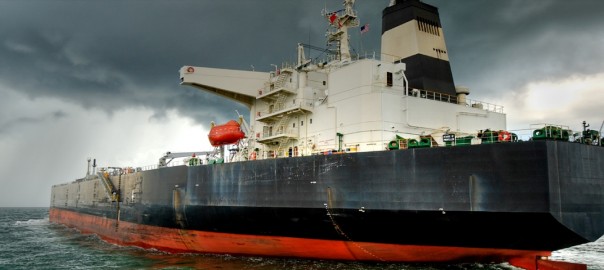1 Introduction
The use of arbitration clauses in commercial contracts seems to have had a steady growth in Norway during the last twenty years, not at least within the offshore and maritime industry. Various surveys indicates that at least 50% of larger co-operations in Norway prefer arbitration, and the number is most likely significantly higher within the offshore and maritime sectors. In accordance with international trends, Norwegian arbitration (and litigation) clauses are in addition increasingly combined with various kinds of ADR clauses, typically some sort of mediation.
There are obviously various reasons for the increased use of arbitration at the sacrifice of ordinary court proceedings. Within the offshore and maritime industry in Norway, one important factor is that Norwegian standard contracts prescribe arbitration as the dispute resolution method. The offshore construction standard contracts “Norwegian Total Contract”, “Norwegian Subsea Contract” and “Norwegian Fabrication Contract” all contains arbitration clauses, while their predecessors up until 2000 prescribed dispute resolution by ordinary court proceedings. Correspondingly the standard Norwegian shipbuilding contract 2000 prescribes arbitration, and the same goes for numerous individual prepared contracts within this field. Within offshore construction the contract provisions, including the arbitration clause, are typically used “back to back” in the contract chain, and it is thus not unusual to find arbitration proceedings in Norway under Norwegian law between non-Norwegian contractors and subcontractors.
The basic legal framework for arbitration in Norway is provided in the Arbitration Act (2004). The Norwegian Arbitration Act is based on the UNCITRAL model law and is listed as adopted by UNCITRAL. The act provides common regulation for all types of arbitration, without distinguishing e.g. between domestic and international arbitration, or between different types of commercial areas. In general, the Arbitration Act facilitates for a flexible process as the provisions to a large extent is non-mandatory – broadly speaking in line with the model law. The flexibility applies for the timing of agreement regarding the arbitration process as well; the parties are basically free to agree on the process both in the arbitration clause itself and as the process goes along.
2 Features of Maritime Arbitration in Norway
Maritime and Offshore Arbitrations in Norway has traditionally been conducted as ad hoc arbitrations, and not via any institutional arbitration. The Arbitration Institute of the Oslo Chamber of Commerce has not been successful in attracting maritime and offshore arbitration, as the parties to such arbitrations usually will find ad hoc arbitration more convenient and effective compared to institutional arbitration. In order to succeed with appointment of arbitrators under an ad hoc arbitration, there is a need for some pragmatism from both parties in order to secure a smooth and efficient process. In cases where this has not been achievable, the parties must resort to traditional court litigation instead.
Arbitrators are usually selected among academics, Supreme Court judges and prominent lawyers within the field of maritime law. Notably the professors at the Nordic Institute for Maritime Law in Oslo have been frequently appointed as ad hoc arbitrators, and secured an efficient and trustworthy process resulting in arbitration awards that have been published from time to time. In recent times we have also more frequently seen that foreign arbitrators are appointed under Norwegian ad hoc arbitrations. It is up to the parties to agree on the language of the arbitration, and in more and more cases this is determined to be English instead of Norwegian. In fact, in the maritime and offshore sectors in Norway, English is more frequently used among professionals than Norwegian, as these businesses are global and terminology used is mainly in English.
The ad hoc arbitrations in Norway are usually conducted efficiently, and the normal time from a notification of arbitration to a final and binding arbitration award is in the range between 6-12 months, depending of course on the extent and complexity of the dispute. The arbitrators will usually demand security for their fees, and order the losing party to pay their fee in most cases. If the dispute has been difficult to determine, the arbitrators may decide that each party shall bear 50% of the arbitrators’ remuneration. With regards to cost awards, these are usually rendered at the same time with the award on the merits, and in the same document, not constituting a separate award. The general rule in Norwegian arbitration is that the winning party may recover its legal costs from the losing party. But the arbitrators are also vested with the discretion to determine a different allocation of legal costs, and as with the arbitrators’ fee, it may from time to time be seen that the arbitrators determine that the parties have to bear their own legal costs without any recovery from the other side.
3 Evidence
Norway is part of the civil law tradition. One deflection of this tradition is that the Arbitration act provides only a few requirements, and limitations, with respect to the taking of evidence. The basic principle is that each party is free to provide such evidence as it finds necessary and desirable, both with respect to documents, witnesses and expert witnesses. The only explicit limitation pursuant to the act is that the tribunal is entitled to reject evidence which obviously is irrelevant or unreasonable disproportional. On the other hand, the act does neither establish any obligation on the parties to provide evidence, and contrary to e.g. the Norwegian Civil Procedure Act, a party is under no obligation to submit unfavourable evidence or evidence requested by the other party. There is, however, an opening for the tribunal to seek assistance from the ordinary courts in the taking of evidence, e.g. witness statements or document disclosure.
Even though the (few) provisions regarding taking of evidence are rather slack and based on the parties own interest in submitting evidence, the practical experience in Norwegian arbitration is, not at least with disputes between professionals within the offshore and maritime sector, that the relevant material is submitted and that the tribunal has an adequate factual basis for its judgment. A contributing factor to this is, of course, that neither party wants to end up with a tribunal under an impression that relevant evidence has been retained from the proceedings.
The provisions regarding taking of evidence are mainly non-mandatory, and the parties are free to agree the procedure they find suitable. In some cases, e.g. in international arbitration or “mega cases” (typically offshore construction), it might be useful for the parties to agree on more tighter and detailed rules of evidence, e.g. with respect to the use of written statements made for the purpose of the arbitration. Alternatively, it might be suitable to agree on following a set of standard rules, e.g. the Norwegian Civil Procedure Act or the rules on the taking of evidence in international commercial arbitration (International Bar Association).
The use of expert witnesses and expert reports is of course regularly vital in arbitrations within the offshore and maritime industry. These sectors are both heavily represented in Norway, and expert witnesses, e.g. with respect to technical issues, engineering, industry standards and industry practice within these fields is both easy available and considered first-class.
4 Arbitration vs ADR
Other forms of alternative dispute resolution (ADR) are somewhat frequent in maritime matters, notably mediation. In many cases this agreed between the parties subsequent to initiating arbitration, and in some cases this is also stipulated in the contract as a condition that must be satisfied before initiating arbitration. Expert opinions on value assessments, claims adjustments etc are usually not binding and final (unless the contract expressly state so), however it is a tendency that the parties rarely dispute such opinions. An expert opinion will anyway have significant weight in a subsequent arbitration (or court hearing), which is why this opinion are usually accepted by the parties.
One should note that Norwegian case law indicates that some ADR mechanisms may in fact be regarded as arbitration. In particular, this applies to various binding and final expert decisions where the expert interpret and apply contract requirements on the facts of the case, in order to reach a binding decision. The Norwegian Supreme Courts has for example considered valuation of real estate according to criteria in an agreement as arbitration. Similarly, binding expert decisions regarding e.g. whether performance requirements in a ship building contract are met or whether a milestone in an offshore fabrication contract is fulfilled, may be regarded as arbitration decisions – depending on the drafting of the contract clauses.
5 Interim Measures
In line with the UNCITRAL model law Art. 17, an arbitration tribunal under the Norwegian Arbitration Act has the power to grant claims for interim measures pursuant to the Norwegian Arbitration Act. Like many other states, Norway has however not implemented the 2006 revision of the model law. Orders for interim measures by the tribunal are not enforceable under Norwegian law, but the parties may approach the ordinary courts with claims for arrest or injunction in parallel with the arbitration proceedings – provided of course that Norwegian courts have jurisdiction in the matter.




